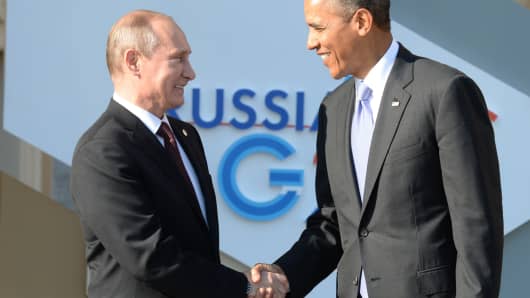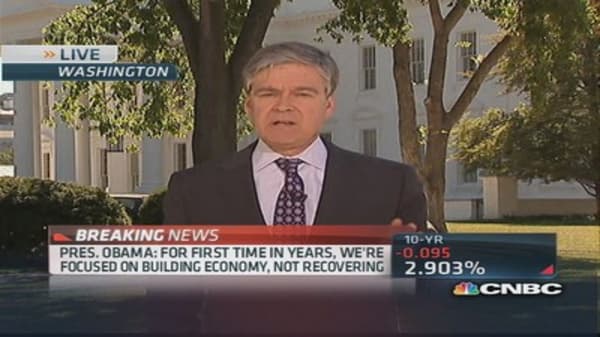Although surveys showed a significant number of House Republicans and Democrats opposed to military action or leaning against it, officials in the leadership insisted it was premature to say the resolution could not be approved. At this stage, just a third of the House and Senate have participated in classified briefings and Obama is still reaching out to lawmakers.
Still, final passage rests on significant votes from House Republicans and Democrats, and the administration is struggling to reach those numbers.
Obama said he and other leaders at the summit had had a "full airing of views on the issue" during a three-hour dinner Thursday night. He said many foreign nations would be issuing statements on their positions, but he didn't say whether any specifically had joined France in supporting his move toward U.S. military strikes.
He said the leaders were unanimous in believing that chemical weapons were used in Syria and that international norms against that use must be maintained. He said division comes over how to proceed through the United Nations.
Obama also held an unannounced meeting with Russian President Putin, a staunch ally of Assad.
Putin called the discussion "substantial and constructive." Likewise, Obama said it was a "candid and constructive conversation." The U.S. president said they agreed the underlying conflict in Syria could only be resolved through a political transition. Obama also said he thinks it is important that he and Putin work together to urge all sides in the conflict to try to resolve it.
Putin said they didn't discuss the case of National Security Agency leaker Edward Snowden, who is living in Russia on temporary asylum from prosecution in the United States for leaking classified programs. Instead, he said the entire meeting focused on airing their positions on Syria.
"I don't agree with his arguments and he doesn't agree with mine, but we are listening to them and trying to analyze them," Putin said.
Putin also made clear Russia did not want to be pulled into a war over Syria, but signaled that Russia would continue to provide current levels of support to the country.
"Will we help Syria? We will. We are helping them now. We supply weapons, we cooperate in the economic sphere, and I hope we will cooperate more in the humanitarian sphere ... to provide help for those people — civilians — who are in a difficult situation today," Putin said.




